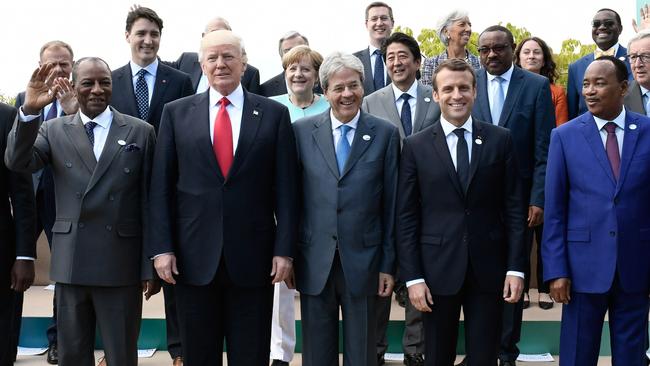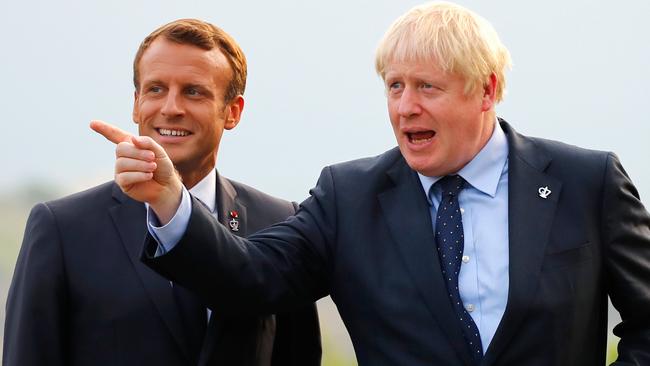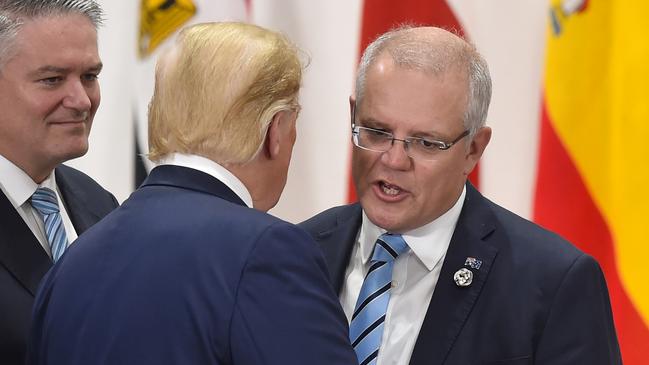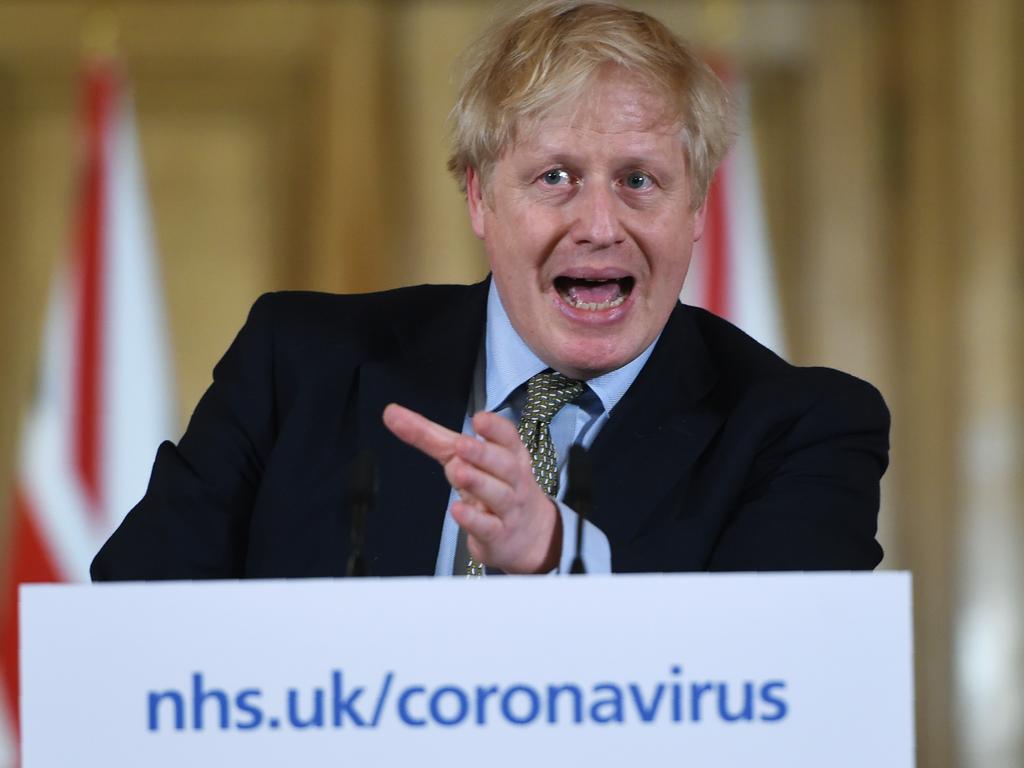
And the first is this. COVID-19 will transform, if not completely kill, globalisation as we have known it. The virus is itself a consequence of globalisation, migrating from an unruly bat in Wuhan in Central China to 200,000 human beings across 100 countries around the globe in less than three months.
It flew on the wings of globalisation, sailed down globalisation’s every canal, traversed all its highways. But it means to kill its host.
First, the centre of every citizen’s sense of accountability for this virus is their national government. No one asks: what is the Indian Ocean Regional Association for co-operation doing about this? They ask: what is Canberra doing?
It is a global pandemic and therefore national governments will need to co-operate. But each nation has taken its own national measures. When the Morrison government first banned direct travel to Australia from China, Beijing was furious. Then a lot of countries did the same.
The epicentre of the crisis now is Europe. COVID-19 has been badly managed in Italy and other European nations. This is partly because the bizarre rules of the European Union limit what each nation can do. The EU is talking of closing its borders. But European nations cannot close their own borders. Italy cannot close its borders, nor France nor Spain theirs.
The richer your national government, and the greater the sovereignty and real control it exercises, the better your chances of doing something effective to delay the spread of the virus.

The other critical variable in the equation is the national health system. A widely compared statistic is how many intensive care beds a nation has per capita, and how much money it spends on intensive care per capita.
A government cannot in the long term spend money if it doesn’t have it. Therefore the COVID-19 crisis, in which many people will die who could have lived if the right treatment — mainly ventilators and intensive care places — had been available, will see the re-emergence of building national wealth as a central aim of politics.
Redistributing wealth is the aim of every internationalist ideology and association on the planet. Building wealth, in contrast, is always a national objective, a national project.
Here is the dilemma. Australia’s wealth comes disproportionately from coal, iron ore and gas. If you want there to be money to provide the intensive care bed and hospital for your sick mother or ailing dad, it can only come from the Australian government.
And the government can only get it if there are booming coal, iron ore and gas industries.
But if you’re fully committed to the international goal of zero net emissions by 2050, you want to get rid of coal, iron ore and gas. Then you can’t pay for your hospitals. The Greens do want to get rid of those industries.
Can it be entirely coincidence that in the midst of this virus, the Victorian government, in a surge of common sense, this week ended the ban on the exploration for conventional gas onshore? The left in politics, and the left internationally, tends to take a nation’s wealth as a given, that it is always there. The COVID-19 crisis will starkly demonstrate the limits of our wealth as we pass through the acute phase. More than that, it will severely damage our economy with a big rise in unemployment. People will want jobs and they will look, not to the UN or the EU or climate change agreements, for those jobs. They will want their national government to create conditions that create jobs.
The coronavirus experience will enhance the power of national governments and weaken globalisation in other ways. A much reported article in China’s People’s Daily pointed out that China makes 90 per cent of US drugs and that if the US got too hostile China might stop supplying those drugs.
There is no sign that Beijing will do any such thing but no serious nation will ever again want its critical drugs to be dependent on one supplier, especially one that may be strategically hostile.
If the Australian government announced tomorrow that it was using government money to establish factories to make key medicines used in Australia, there wouldn’t be a speck of political opposition worth noticing.
Structurally, the crisis will see power flow to national capitals everywhere. Emmanuel Macron, the French president, repeatedly told his people this week that they were “at war” with COVID-19. That’s the giveaway. For there is one perennial winner in war. If a nation is not wholly destroyed, the national government always emerges stronger, with new powers and new dominance.

The federal income tax was introduced in Australia in 1915, to help pay for World War 1. In the US it was introduced by the national government during the Civil War in 1861, also to pay for the war effort. In Britain it was introduced in 1799 to help pay for the Napoleonic Wars. In Australia, income tax became wholly national, rather than state-based, during World War II. Changes like this are never reversed. War is supremely a national undertaking and it always leads to greater concentration of power in the national government.
In the US, the Pentagon became the greatest research organisation in history due to the needs of World War II, then the Cold War. Innovations we now regard as the embodiment of freewheeling capitalism, such as the internet, were invented by the Pentagon, a government agency, as part of the national defence effort.
In this country, the greatest period of nation building came under Robert Menzies after World War II. Cities, suburbs, irrigation schemes, universities, national institutions — Menzies built them all in a determined, focused drive to craft a capable, resilient nation.
The lesson Menzies took from World War II — the need to build a strong nation — may well be the lesson we take after the virus crisis has passed, whenever that might be. All around the world, centre-right politics was already being transformed from old-style market liberalism to a more pragmatic, democratic nationalism, a la Boris Johnson, Donald Trump (despite his many flaws), Shinzo Abe, Narendra Modi and many others.
This doesn’t mean beggar-thy-neighbour destructiveness.
Strong, confident nations can co-operate well.
But first and foremost they are nations with national priorities, national personalities, national destinies. In times of crisis, like coronavirus, it is the nation that counts, not globalisation.








Coronavirus is the hunter-killer enemy of globalisation. The first reaction to this virus must be compassion and human solidarity. It is above all a health crisis. But it will have profound and lasting social, economic, political, cultural and geo-strategic consequences.